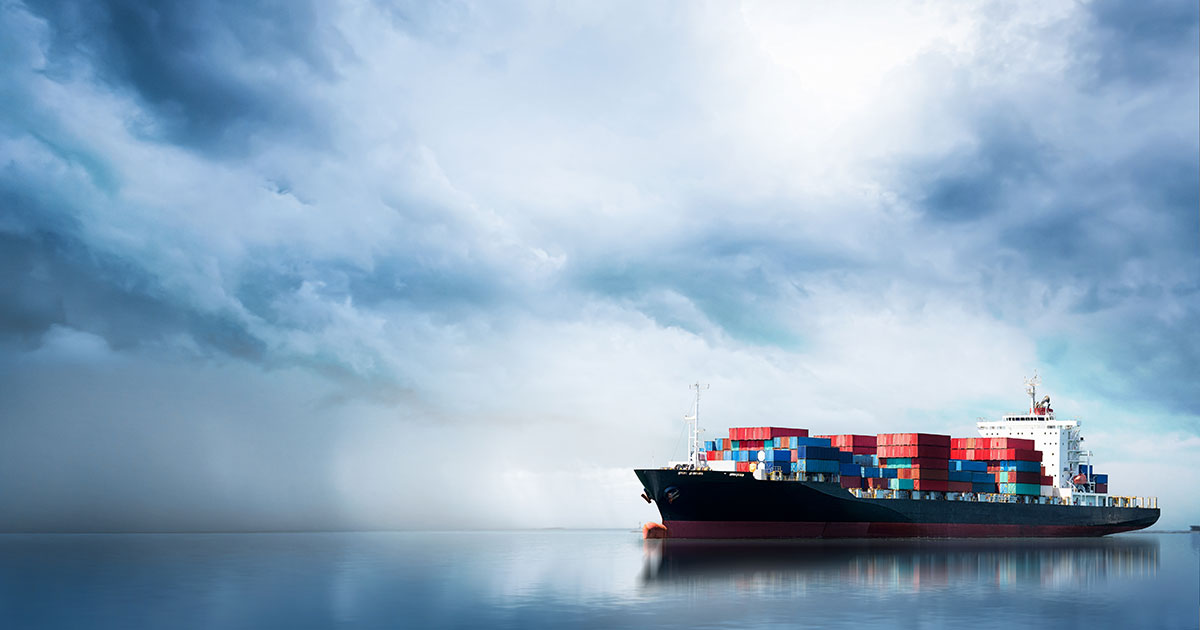The Institute of Marine Engineering, Science and Technology, (IMarEST), is calling for greater understanding of how to take full account of climate change imperatives in ensuring the effective management and delivery of a Blue Economy which could be worth more than $3 trillion1 by the year 2030. The call comes as the Institute hosts its fourth biennial Oceans of Knowledge conference during the week preceding COP 26.
The Climate Change and the Ocean conference will focus on three themes:
- The sustainable use of the ocean and its resources
- The role of the ocean in natural and engineered climate mitigation
- Rising sea levels and coastal vulnerability
Ralph Rayner, Co-Chair, IMarEST Operational Oceanography Special Interest Group, which is organising the conference, explains: “In the next decade it’s clear that we will need to see a profound and abrupt transition in the way we use our ocean; promoting economic growth, social inclusion and the preservation and improvement of livelihoods, while ensuring the environmental sustainability of the ocean and coastal areas.”
World-leading speakers at the conference from Sir David King, Founder and Chair of the Centre for Climate Repair, Cambridge University, Dr Richard Spinrad, who leads the US government’s climate agency, the National Oceanic and Atmospheric Administration, as well as speakers from the Schmidt Ocean Institute, the International Energy Agency, the Organisation for Economic Co-operation and Development, the Global Wind Energy Council and many more, will highlight and debate the vital role of the Blue Economy as a key component of an effective response to the climate emergency.
Ralph adds: “Climate change mitigation and adaptation demands that we completely rethink our use of the ocean as a source of energy and food while protecting and enhancing its role as a carbon sink. Our conference aims to connect scientific understanding with the practical management of this critical transition.”
Endorsed by the UN’s Decade of Ocean Science for Sustainable Development and bringing together representatives of government, academia and industry, the conference will aim to make a timely contribution to raising awareness of the critical importance of the ocean in climate change adaptation and mitigation.
“The next ten years are now widely accepted as critical for climate action; this is a global issue and we need global collaboration and action. The outcomes of our conference will make a key contribution to the UN Ocean Decade,” concludes Gus Jeans, Co-Chair, IMarEST Operational Oceanography SIG.
Full conference program
Day one: The Challenge; Use of the Ocean and its Resources; The New Blue Economy; Meeting the Challenge.
Day Two: Rising Sea levels: What We Know; What We Don’t Know; Living with Uncertainty; and Meeting the Challenge.
The conference is delivered in partnership with the Royal Meteorological Society and is supported by the Institute of Physics, the Royal Geographical Society, the Rising Seas Institute, the Society for Underwater Technology, the UK Met Office, the Grantham Institute on Climate Change and the Environment, the Institution of Mechanical Engineers, the Institution of Environmental Sciences, Encounter Edu, and Nekton.
1 from research conducted by the Organisation for Economic Co-operation and Development and published in its report The Ocean Economy in 2030. The lead author of this report is a speaker at the conference.



